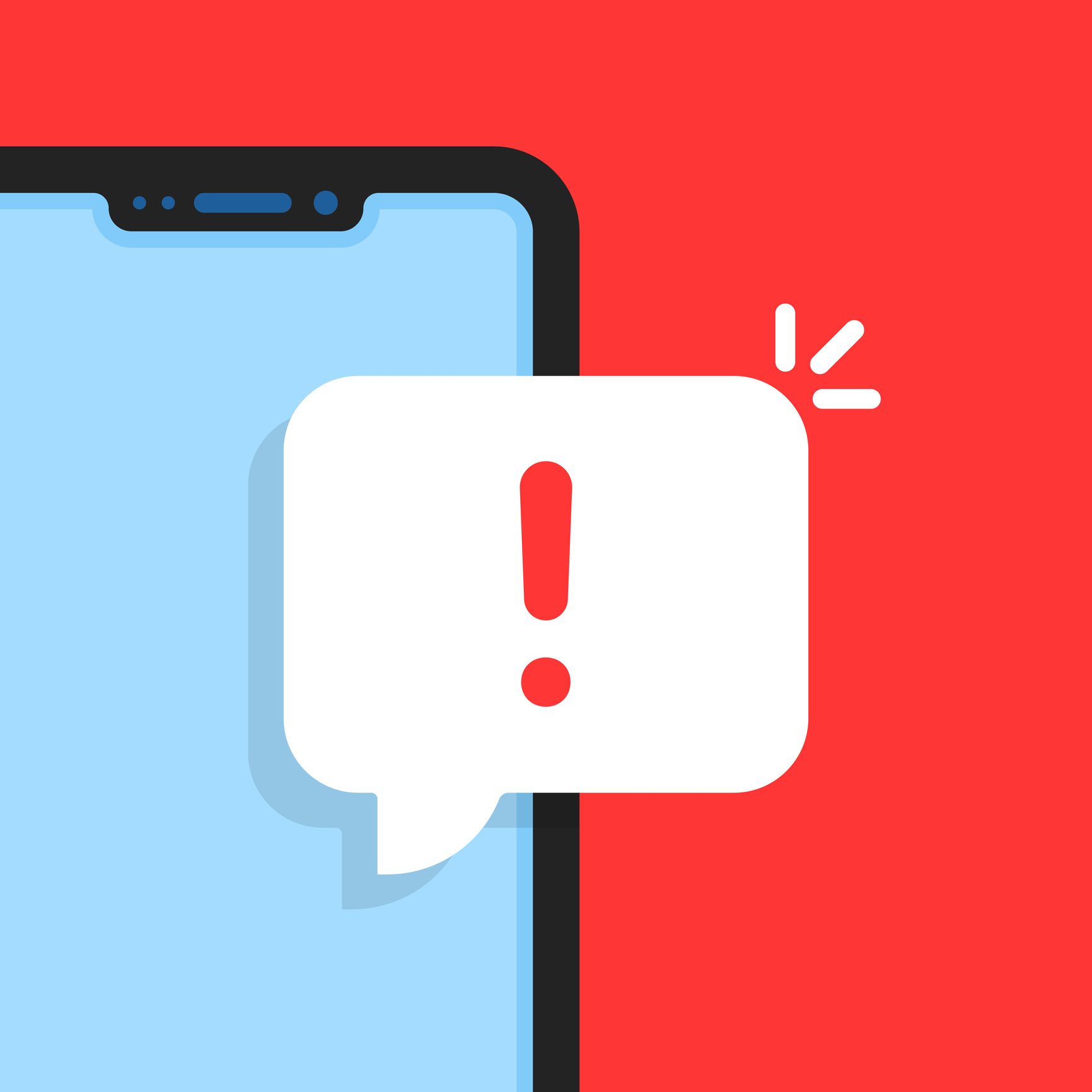With online scams skyrocketing, experts say learning how to identify a scammer isn’t just useful—it’s a crucial skill

How to Identify a Scammer: 9 Red Flags to Watch Out For

Whether you’re shopping online or searching for love on a dating app, remember: Scams are widespread. Approximately 2.6 million people in the United States reported being victims of fraud in 2024, resulting in a combined $12.5 billion in losses, according to the Federal Trade Commission (FTC). It’s important to understand online security, including how to identify a scammer—it could save you from losing hundreds of thousands of dollars in the future.
“While it’s true that scammers’ and fraudsters’ schemes continue to get more sophisticated, most still fundamentally rely on the idea of social engineering,” says David Thomas, senior director of marketing at the University of Denver and the college’s former executive director of online programming, who spent nearly two decades overseeing academic technology. “In other words, they play off human error and rely on convincing you to believe that something made up is actually true. Often, it’s the small slip-ups and little mistakes that give scammers away.”
That’s why you need to learn how to identify a scammer. With the help of an expert, we’ll walk you through the steps of identifying online scams to help safeguard your money and identity.
Get Reader’s Digest’s Read Up newsletter for more tech, travel, cleaning, humor and fun facts all week long.
1. There’s a sense of authority
Online scammers pose as representatives or employees of major and popular businesses, brands or organizations. They know you’re likely to respond to these emails or phone calls based on blind trust. Think about it: If the Social Security Administration or Internal Revenue Service reach out, you’ll trust the request is important, right? That’s why you must be suspicious of anyone who contacts you from these organizations.
2. You’re contacted out of the blue

If you ever get a random call from a company or government agency, don’t answer it. Chances are, it’s from a scammer. Hang up and call or email the business or agency directly. The company will be able to tell you if you’re dealing with a legitimate call or email—or a scam.
3. There’s a sense of urgency
If you grill a scammer who calls you—the FBI suggests going slowly and asking a bunch of questions—he or she will probably hang up. Con artists want to get your money as quickly as possible, so they create a sense of urgency when they have you on the phone. They often prompt you to act upon impulse. You should beware of anyone who tries to rush or push you into a decision without thinking twice about it.
4. You spot lots of misspelled words or grammatical errors
Thoroughly review any emails, messages or online chats you receive for misspellings, grammatical errors, strange subject lines or other discrepancies. Verify the email address’s domain as well—for example, instead of Amazon.com, an email may be from Amazon.net, a dead giveaway that the communication isn’t legitimate.
5. Your contact refuses to appear on camera or meet in person
Fraudsters operate by playing with your emotions, which is why romance scams are on the rise. Bad actors create fake profiles on Facebook Dating, Tinder and other dating apps to lure you in. Posing as singles seeking out true love, they launch a love bombing campaign. They will send you a series of text messages expressing intense love for you and persuading you to spend all your time with them.
They’ll strongly encourage you to give them gifts or cash, assuring you of their dire financial straits. Since you’ll think you’ve found true love, you may be tempted to give in to their requests quickly. If you find yourself in this situation, here’s how to identify a scammer online: Ask them to join a video chat.
Most con artists don’t want to participate in video chats, talk on the phone or meet in person—that’ll just make it easier for you to realize they’re phonies. Listen to your gut if you think you’ve fallen for a romance scam. Do a reverse image search of their profile picture on Google. If you find other names associated with the photo, or it appears on a stock image site, alarm bells should ring.
In essence, your best defense here is a good offense: Ask lots of questions, and don’t feel pressured to act quickly. After all, a normal and healthy relationship is built on trust and two parties being willing to openly share.
6. The price is too good to be true
With eBay, Amazon, Instagram and Facebook Marketplace scams on the rise, you should protect your hard-earned money by shopping smarter. Con artists take great pains to create legitimate-looking fake online stores on social platforms. You can often find steeply discounted goods there. Trust your instincts and know that if a price is too good to be true, it’s likely a scam. Even if you receive a receipt, you may never receive the item, or it may be in a different form or condition than the way it was portrayed on the online store.
Do your part and fight back by scouring the net for verified reviews from happy customers. It’s also smart to research other vendors’ prices to see if the seller’s rates are in the market range. A vendor whose prices are far below prevailing market rates is probably not genuine.
7. There’s a promise of easy money

Remember: No genuine financial investment opportunity will pay off 100% of the time, and it’s not legal to advertise it as “guaranteed” income. A promise of seemingly easy money should set off scam alarm bells for you.
Also, never purchase a business, franchise or sales system requiring you to invest in expensive equipment up front. Job scams promising work-from-home opportunities that require minimal time and effort but also ask you to purchase costly training, certifications or starter kits in advance—such as product sales or mystery shopper positions—are gaining popularity, so be wary of them. You will likely never hear from the company once you’ve handed the money over.
Similarly, remember that a favorite trick of sweepstakes and lottery scammers is to let you know you’ve won a prize—but there’s a catch: You need to pay an (illegitimate) fee in advance to collect it.
8. Your contact requests an unusual payment option
It’s not uncommon for romance scammers or someone who’s hacked a friend’s social media account to request that you send money using money-transfer apps (Cash App, PayPal, Venmo, etc.), gift cards, Western Union, wire transfers or cryptocurrency tokens.
Of course, the catch is that these payments can often be challenging to monitor, track and recover, and sums sent this way can quickly disappear from accounts that they’ve been forwarded onto. Your best defense, if you believe the request is legitimate, is to use a retail or payment platform that offers strong protection for consumers, or route payments through a credit card with similar safeguards.
9. You’re required to scan a QR code in an email
You may receive a seemingly authentic-looking email appearing to originate from a well-known and trusted company or organization. Look closely— scammers are becoming increasingly sophisticated in their communication and can now create genuine-looking emails with the goal of fooling their targets into forking over money or personal details.
The email may ask you to scan a QR code. Don’t fall for the ruse! The link will likely take you to a spoofed website full of malware that will either give the scammers complete control of your digital device or steal personal information like your credit card numbers, user names and passwords to certain sites.
What to do if you think you’ve been scammed
If you’re ever unsure if another party’s request is legitimate, call or email the company directly at its official phone number or email to verify. If you do fall victim to a scammer, don’t be embarrassed; as the stats show, it happens all too frequently.
The most important thing to do is fill out an official report with the FTC and file a report with your local police station. Include your FTC report, a driver’s license, Social Security card or other form of government-issued personal ID, text messages and emails, or other direct evidence of the scam. Finally, check your homeowners insurance to see if it covers fraud.
FAQs
How do I find out the identity of a scammer?
It’s not your job to play detective. Simply document everything and let the pros figure out the true identity of your scammer. You should collect all evidence of the scam that you can, including:
- Names the con artists used
- Titles or positions they pretended to have
- All online correspondence (social media posts, group posts and chats)
- Website addresses and screenshots
- Emails and email addresses (save them on a digital device or print them out; include complete header information)
- Phone numbers
- Account information (statements and trade confirmations)
- Disclosures and sales materials
- Credit card receipts and statements
- All forms of payment (canceled checks and receipts for wire transfers, money orders or prepaid cards)
- Bitcoin or other digital currency exchange
- Envelopes or other mediums containing documented correspondence
Then block the scammer on your phone, block email addresses in your inbox and block all communication on chat platforms like Facebook Messenger, Microsoft Teams, Skype, WhatsApp and Telegram. Don’t try to look the person up using “people finder” or phone number lookup services. The phone number is likely spoofed and the name made up, so you will get nowhere fast.
What are some excuses a scammer uses to con you?
Scammers may claim that they can’t meet you in person because they are either away for a while (generally on a business trip) or stationed in another country. They may try to squirrel out of a face-to-face visit by claiming that a sudden family emergency or event has come up. Or they may simply claim they are too shy to meet up. Whether they use these excuses or others, they want to wiggle out of a meeting that could clue you in to their con.
How do I know if the person I am talking to online is real?
Check for inconsistencies in their stories, communications or correspondence. Also, ask to see them on a video call or in person, or request to see their government-issued personal identity. You can also conduct a reverse image search to verify their identity.
How do you outsmart a romance scammer?
You should stay where the conversation started. Then follow these best practices:
- Never assume that a person is legitimate.
- Look that person up online and do a reverse image search of their profile photo.
- Always be skeptical.
- Don’t rush through things.
- Insist on a face-to-face meeting.
Is it best to block a scammer?
Yes, you should block a scammer to avoid getting calls and emails. Be sure to report the phone number and email address as junk. Block their social media profiles as well.
About the expert
|
Why trust us
Reader’s Digest has published hundreds of articles on personal technology, arming readers with the knowledge to protect themselves against cybersecurity threats and internet scams as well as revealing the best tips, tricks and shortcuts for computers, cellphones, apps, texting, social media and more. For this piece, Scott Steinberg tapped his experience as an award-winning futurist and writer specializing in technology trends to ensure that all information is accurate and offers the best possible advice to readers. We rely on credentialed experts with personal experience and know-how as well as primary sources including tech companies, professional organizations and academic institutions. We verify all facts and data and revisit them over time to ensure they remain accurate and up to date. Read more about our team, our contributors and our editorial policies.
Sources:
- David Thomas, senior director of marketing at the University of Denver
- Aura: “How To Track Down Someone Who Scammed You (And What to Do Next)”
- CFTC: “6 Steps to Take after Discovering Fraud”
- CNBC: “Investment fraud is on the rise. Here’s how to protect yourself”
- FBI: “Romance Scams”
- Fraud.org: “Contact Our Experts”
- FTC: “Consumer Sentinel Network Data Book 2024”
- FTC: “Scam alert: QR code on an unexpected package”
- FTC: “New FTC Data Shows a Big Jump in Reported Losses to Fraud to $12.5 Billion in 2024”
- National Cyber Security Centre: “How to spot a scam email, text or call”
- Kin: “Does homeowners insurance cover identity theft or fraud?”
- Respect Victoria: “Red flags: What is love bombing and why is it bad?”






















